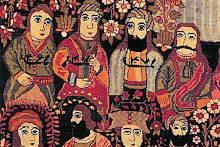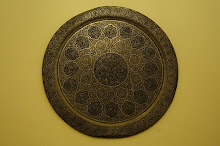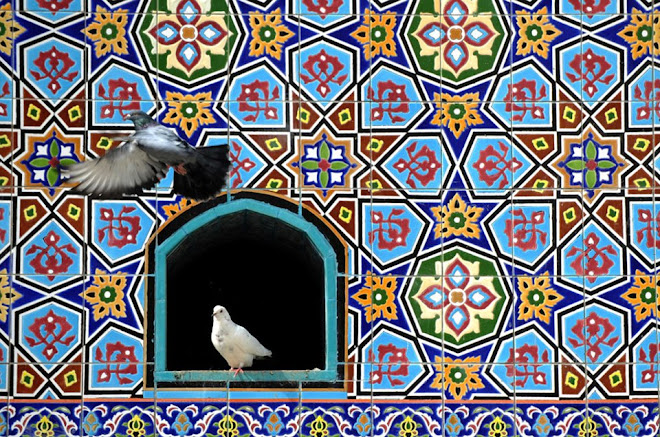Aficionados of Middle Eastern politics and anyone who's kept a close eye on Egypt's revolution (and its aftermath) is likely familiar with Omar Suleiman: the former army general turned intelligence chief under Hosni Mubarak, who was once deemed most likely to succeed the aging autocrat.
As Mubarak's ouster catapulted the otherwise camera-shy Suleiman into the international spotlight, and the world scrambled to piece together the biographical fragments of the all-powerful mukhabarat king, another little-known man of the same name (but famous in his own right) kept popping up on Internet search engines.
In nearby Syria, a country stewing in the breathless anticipation of its own impeding rebellion, there appeared to be another Omar Suleiman - but spelled Souleyman - whose talents had little to do with orchestrating political intrigues or striking deals with the Israelis. The Syrian Souleyman was instead making a name for himself as one of the region's busiest and most accomplished wedding singers.
Born in the rural region of al-Jazeera, abutting the Turkish and Iraqi borders, Omar Souleyman has become a kind of cult figure situated on the margins of Middle Eastern pop music. A fusion of singer, emcee, dance-maestro and D-J, Souleyman was encouraged by friends to go professional after strutting his stuff at a handful of weddings in his village of Ras al-Ain. Known by his trademark red checkered keffiyeh, dark aviators, bushy moustache and his no-nonsense demeanour, Souleyman has produced around 500 albums (mostly recordings of live wedding celebrations) since 1994.
His unique and innovative sound, blending disparate traditions, stems directly from the multicultural wellspring of his native Syrian Mesopotamia. Souleyman combines classical Arabic mawwal style vocalization with Syrian dabke (folkloric dance music) and infuses it with Iraqi choubi and some of the bolder elements of Kurdish and Turkish music.
The gritty, high-energy sound that's produced, relying heavily on synthesizers, comes across as almost alien to the untrained ear. Its galloping techno-esque vibe has been described by some as "frenetic", "overdriven", and even "shrill". Various reed and percussion instruments combine to turn his performances into prefect storms of regional musical fusion.
The ancient line and circle dances that erupt at the weddings and parties he plays - a unique cultural expression that goes back thousands of years - provides the final element of the music, without which it would somehow be incomplete. Souleyman presides over these ritualistic and somewhat tribal events like an iconic garage band pied piper of the Mesopotamian unconscious.
One of Souleyman's collaborators, a man named Mahmoud Harbi, is responsible for generating the singer's lyrics. The two often perform together, with Harbi standing behind him while he whispers folk poetry into Souleyman's ear (like a kind of human teleprompter), which the singer then broadcasts. The spontaneous routine is employed to create songs that are relevant to the event and families that host the parties Souleyman plays.
The growing popularity of this musical form has landed Souleyman big gigs at weddings and other functions in Lebanon, Saudi Arabia and the UAE. He's made appearances in the West (where he now has a small following) and has even collaborated on a track with Icelandic singer Bjork - a longtime fan.
As Mubarak's ouster catapulted the otherwise camera-shy Suleiman into the international spotlight, and the world scrambled to piece together the biographical fragments of the all-powerful mukhabarat king, another little-known man of the same name (but famous in his own right) kept popping up on Internet search engines.
In nearby Syria, a country stewing in the breathless anticipation of its own impeding rebellion, there appeared to be another Omar Suleiman - but spelled Souleyman - whose talents had little to do with orchestrating political intrigues or striking deals with the Israelis. The Syrian Souleyman was instead making a name for himself as one of the region's busiest and most accomplished wedding singers.
Born in the rural region of al-Jazeera, abutting the Turkish and Iraqi borders, Omar Souleyman has become a kind of cult figure situated on the margins of Middle Eastern pop music. A fusion of singer, emcee, dance-maestro and D-J, Souleyman was encouraged by friends to go professional after strutting his stuff at a handful of weddings in his village of Ras al-Ain. Known by his trademark red checkered keffiyeh, dark aviators, bushy moustache and his no-nonsense demeanour, Souleyman has produced around 500 albums (mostly recordings of live wedding celebrations) since 1994.
His unique and innovative sound, blending disparate traditions, stems directly from the multicultural wellspring of his native Syrian Mesopotamia. Souleyman combines classical Arabic mawwal style vocalization with Syrian dabke (folkloric dance music) and infuses it with Iraqi choubi and some of the bolder elements of Kurdish and Turkish music.
The gritty, high-energy sound that's produced, relying heavily on synthesizers, comes across as almost alien to the untrained ear. Its galloping techno-esque vibe has been described by some as "frenetic", "overdriven", and even "shrill". Various reed and percussion instruments combine to turn his performances into prefect storms of regional musical fusion.
The ancient line and circle dances that erupt at the weddings and parties he plays - a unique cultural expression that goes back thousands of years - provides the final element of the music, without which it would somehow be incomplete. Souleyman presides over these ritualistic and somewhat tribal events like an iconic garage band pied piper of the Mesopotamian unconscious.
One of Souleyman's collaborators, a man named Mahmoud Harbi, is responsible for generating the singer's lyrics. The two often perform together, with Harbi standing behind him while he whispers folk poetry into Souleyman's ear (like a kind of human teleprompter), which the singer then broadcasts. The spontaneous routine is employed to create songs that are relevant to the event and families that host the parties Souleyman plays.
The growing popularity of this musical form has landed Souleyman big gigs at weddings and other functions in Lebanon, Saudi Arabia and the UAE. He's made appearances in the West (where he now has a small following) and has even collaborated on a track with Icelandic singer Bjork - a longtime fan.














